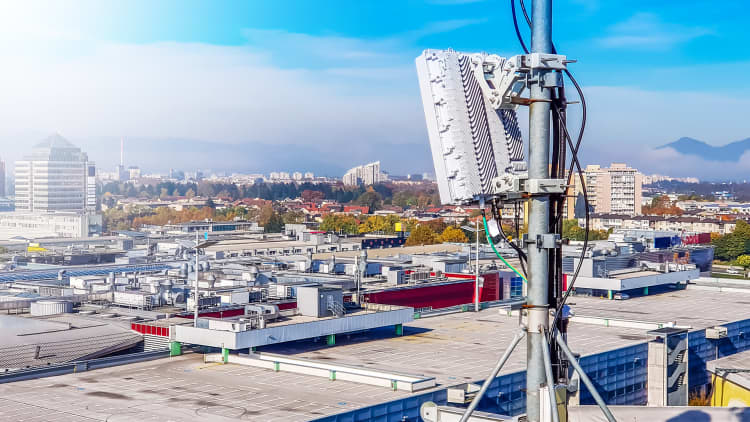LISBON, Portugal — A top Huawei executive has urged companies to partner with the Chinese tech giant to develop 5G technology applications, saying in a speech Monday that those who do will be the "biggest winners."
In a keynote address at the Web Summit tech conference in Lisbon, Portugal, Huawei Rotating Chairman Guo Ping highlighted the company's ambitions to be a global leader in 5G, adding the rollout of the new commercial networks is going "faster than expected."
The 5G technology aims to bring faster speeds and lower lag times than previous networks like 4G and 3G. In addition to speeding up download times for consumers, 5G has been touted as a possible game-changer in applications like driverless cars and remote surgery that require quick, reliable internet connections.
Guo said the applications and software built on top of 5G "are what generate true value."
"This is a huge market worth trillions of U.S. dollars," Guo said. "The biggest winners will be our partners."

U.S. officials have warned that Huawei's 5G technology, which includes both software and networking equipment, poses a security threat because it could open a backdoor for Chinese spying. They point to Chinese laws that allegedly require every domestic company to assist with intelligence gathering if Beijing requests it. Huawei has repeatedly denied that it would engage in any form of espionage or provide data to the Chinese government.
In May, the U.S. placed Huawei on a blacklist, which forced American companies to get special licenses to do business with the Chinese firm. So far, no licenses have been granted, though U.S. Commerce Secretary Wilbur Ross said in an interview Sunday that they are coming "very shortly."
As a result of the blacklist, Huawei was unable to license the latest version of Android's operating system on its new Mate 30 smartphone. That means the phones will not come pre-installed with Google apps like Maps, YouTube, or Gmail.
Huawei has instead been developing its own operating system called HarmonyOS and is investing $1.5 billion over the next five years to encourage developers to design apps for its devices.
"Huawei's smartphones, smartwatches, and smart screens are very popular," Guo said Monday. "To deliver better experience, we are opening up to more third-party apps and services."


